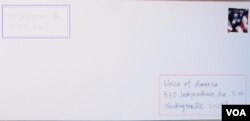Before we come to America, we can find out tons of tips on how to get well prepared for living in the U.S. (like the blog of Student Union!). We read them, memorize them and share them, and then we feel highly confident when landing on the U.S. But sometimes, things go unexpectedly wrong. Here are some real, funny, but a little awkward stories of my friends and mine, from when things didn’t go quite as planned.
Dash but a little lower
My friend Zhang is a public relations intern in San Francisco, managing media relations. Once, she was on a phone call with a media agency discussing a series of emails they exchanged.
She was trying to tell them that they had to put an underscore between two words in a website’s URL, but could not think of the right word in English. She stared at the “_” hopelessly, trying deadly hard to find the right word in her mind: “Line?” “Strip?” “That U with a line below it symbol in Microsoft Office 2007?”
Finally, she came up with a word which she thought may be most similar to the accurate one. She ended up asking them to please use the “DASH BUT A LITTLE LOWER!”
Tara’s suggestion: What we learn from the preparation of TOEFL, GRE and GMAT is basically about academic English, which makes us comfortable in class. Besides that, English which is used frequently in daily school/office life should get equal or even more attention if you plan to live in America.
Why did the rent come to my home?
I’d like to say that all the stories here happened to my friends, and that I have never had an embarrassing misstep, but this one happened to me.
This Monday, I sent a check to the leasing company for my apartment, to pay for October’s rent. Two days later, I found the envelope that I had just mailed out lying in my mail box comfortably and quietly. Why did it come back to me?
I stared at it for a long time without being able to figure out why the post office had refused to send it. I finally figured it out. I had reversed the “send to” address and “come from” address. I had mailed the check to myself!
“Arrested” by policemen
My friend Zhou is a PhD student at Ohio State University. One day, the fire alarm rang in the building where he lives and he quickly went outside with all of his belongings. When he was outside, he found that the area had been cordoned off with police tape, and his car was behind the police tape.
He decided to get his car out from behind the tape, rather than stand around and wait to be allowed back into the building. While he was approaching the police area, a giant police dog rushed over to him barking loudly. And before he knew what was happening, he found himself being secured by two policemen, hands behind his back.
Afterwards, once the confusion was cleared up, the police told him there had been a suspected bomb in the building. Needless to say, they were taking the incident pretty seriously, and were not happy with Zhou.
Tara’s suggestion: In America, you must always 100 percent follow what the police officers ask you to do. There is no flexibility or room for negotiation about public safety here. Also, annoyingly, false alarms happen everywhere frequently in the U.S. You may not need to pack all your belongings every time before going out, but cell phone and purse is needed.
Male or female?
My friend is currently seeking a job in America. She has to send a lot of emails to various professional contacts and hiring managers. She told me that a lot of times she can’t tell just from someone’s name what gender they are. She has ended up sending emails to senior men addressing them as “Ms.” And these are people she’s hoping will hire her for a job. Similar stories have happened when she emailed school faculty – she ended up calling women “he”.
Tara’s suggestion: Accurately telling gender from first name mostly depends on your familiarity with American names and culture. Websites designed to help you choose a baby name may be helpful when it comes to gender guessing.
Time Zone
The last awkward story happened to myself as well. Two weeks ago, Voice of America and I set up a time to do a phone interview about this blog. I felt really excited.
We decided to make the phone call at 9:30pm Thursday, after I got out of class. I did not tell them the time zone where I am in, so they thought it was Eastern time, which would be 6:30pm in California, where I am. At 6:30pm, when I was so excited that I could not help thinking of the interview after class, my phone suddenly rang. My professor was watching me, and my classmates were watching me, what should I do?
I was so embarrassed, I rushed out of the classroom and had to tell VOA that I was in class, of course, and couldn’t do the interview then. That was another embarrassing time because I screwed up the interview. Luckily, the VOA journalist was very nice and we ended up rescheduling the interview for that weekend (it aired on VOA's Asia news broadcast, which is available online).
You should ALWAYS include the time zone when you set up a time with people in the U.S. At time.gov you can always find the local time in any time zone.




